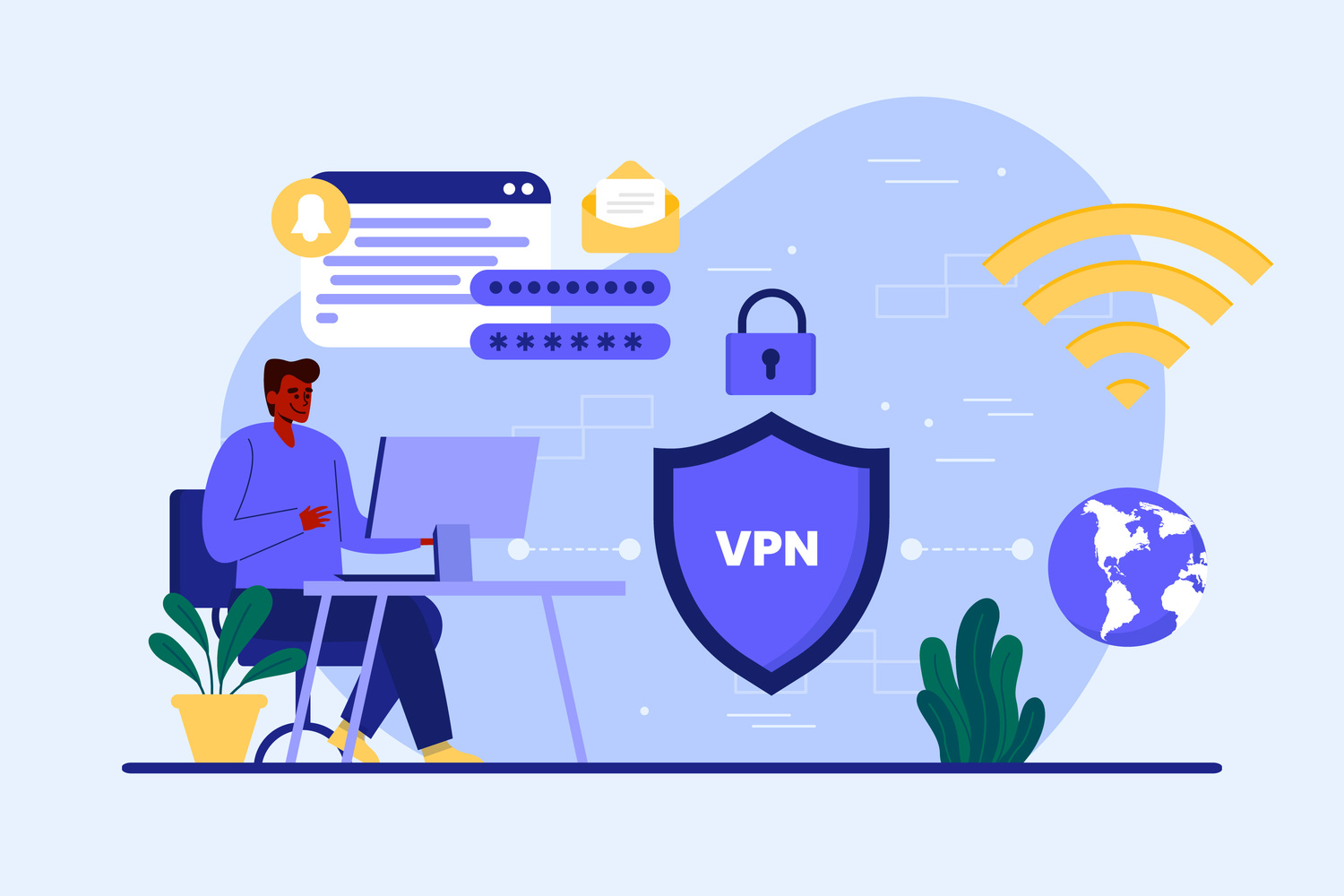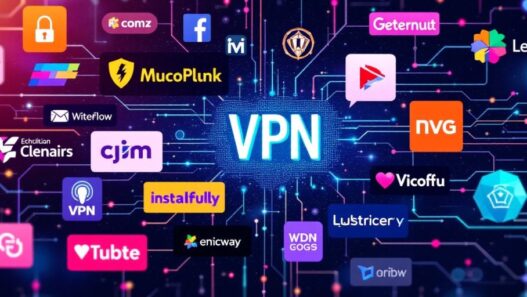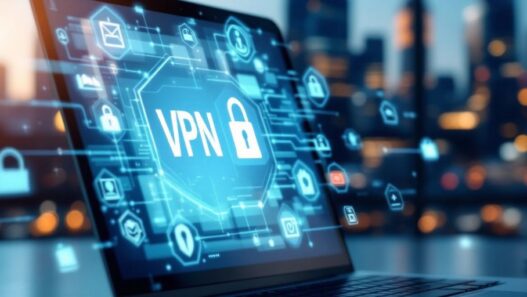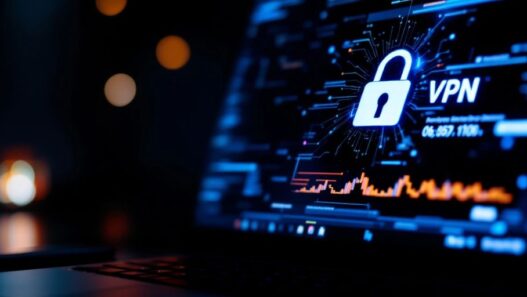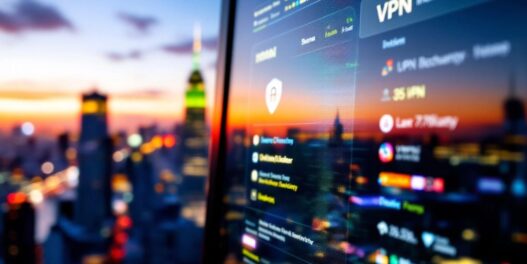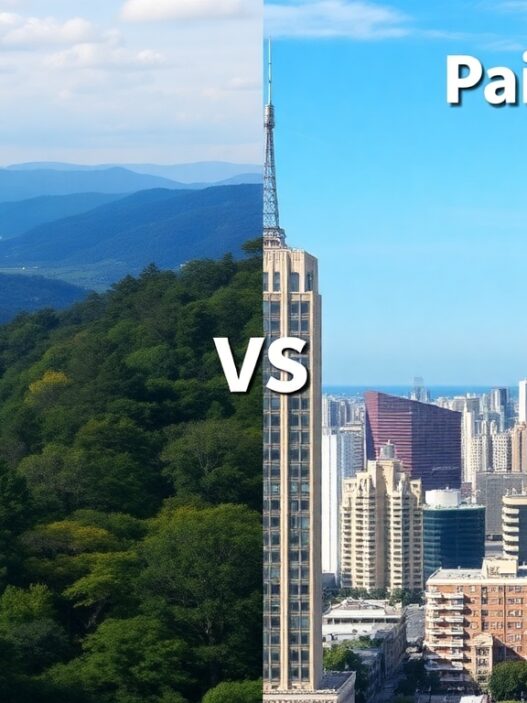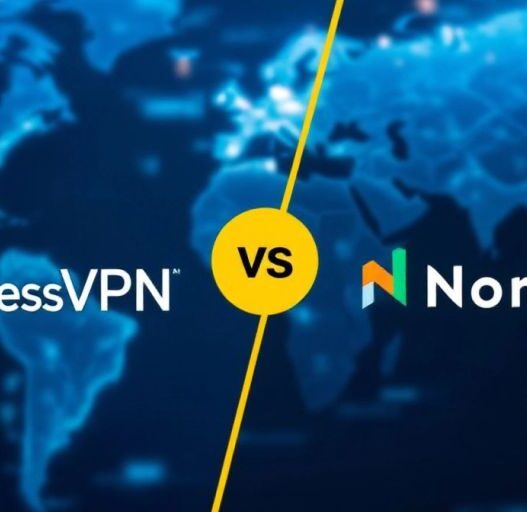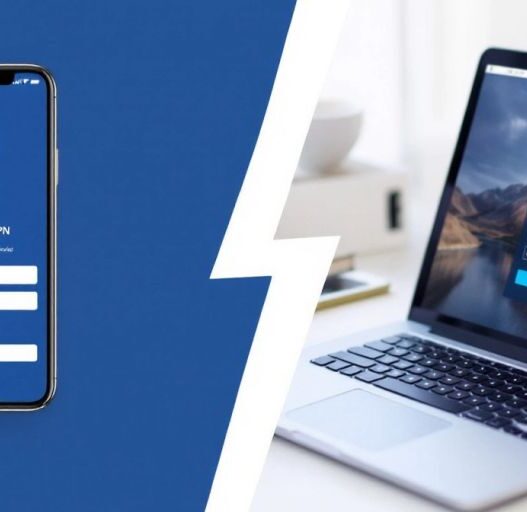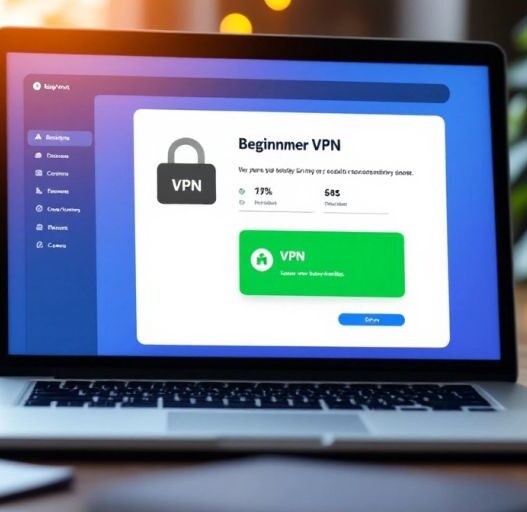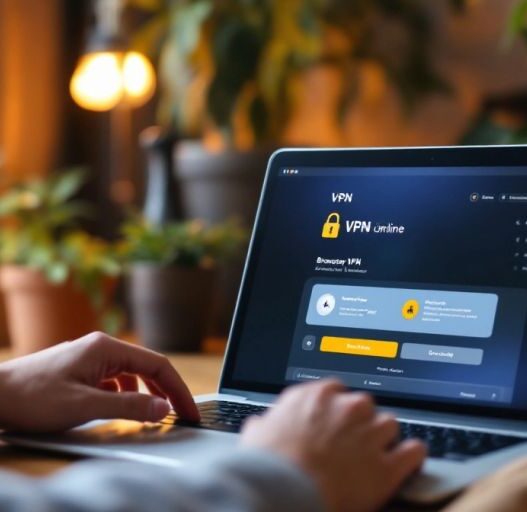This article explores the legal challenges that major VPN providers are currently facing and how these issues impact users. With the rise of online privacy concerns, understanding the legal landscape surrounding VPNs has become essential. This piece breaks down various aspects of VPN legality and user rights, guiding readers through the complexities of using these services safely.
Key Takeaways
- VPNs face different legal rules in various countries, making it tricky for users to know what’s allowed.
- Using a VPN doesn’t protect users from legal trouble if they engage in illegal activities.
- It’s important for users to read and understand the terms of service of their VPN provider.
- Changes in laws may affect how VPNs operate and what protections they offer.
- Users should stay informed about their rights regarding data privacy when using VPNs.
Legal Enforcement Issues Surrounding VPN Providers
VPNs, or Virtual Private Networks, are often seen as a solution for enhancing online privacy. However, they also face significant legal enforcement issues that can impact users. Understanding these challenges is crucial for anyone considering using a VPN.
Challenges in Legal Accountability
The primary challenge for VPN providers is the lack of standardized international regulations. Different countries have varying laws regarding VPN usage, which can lead to confusion for users. In some places, VPNs are completely legal, while in others, they may be heavily regulated or even banned. This inconsistency complicates the legal landscape for users, making it essential to be aware of local laws.
Jurisdictional Disparities
Jurisdictional disparities create a complex environment for VPN users. For instance, in countries with strict regulations, law enforcement can request user data from VPN providers. This can lead to serious consequences for users who may not be aware of the legal implications of their online activities. Here are some key points to consider:
- Legal frameworks vary significantly by region.
- Users may face penalties for accessing restricted content.
- Non-compliance can lead to stricter monitoring of VPN services.
Law Enforcement Cooperation
Cooperation between VPN providers and law enforcement can be problematic. Many VPN services do not keep logs of user activities, making it difficult to identify individuals involved in illegal actions. This raises questions about accountability and the effectiveness of legal systems in addressing cybercrime.
Understanding the legal implications of using VPNs is vital for navigating these risks effectively.
In summary, while VPNs offer valuable privacy features, users must remain informed about the legal challenges surrounding their use. By understanding these issues, users can make more informed decisions about their online privacy and security.
Impact of VPN Providers’ Legal Challenges on User Privacy
VPN providers are facing significant legal challenges that can directly affect user privacy. As these companies navigate complex legal landscapes, users must understand the implications of these challenges on their online safety.
Data Privacy Concerns
The legal issues surrounding VPN providers raise serious data privacy concerns. Users may unknowingly expose their personal information if a VPN provider does not prioritize privacy. Here are some key points to consider:
- Data Logging: Some VPNs may keep logs of user activity, which can be accessed by authorities.
- Jurisdictional Risks: VPNs based in countries with weak data protection laws may not safeguard user data effectively.
- Non-Compliance: VPN providers that fail to comply with regulations can put users at risk of data breaches.
User Anonymity Risks
While VPNs are designed to enhance anonymity, legal challenges can undermine this benefit. Users should be aware of:
- De-anonymization Techniques: Law enforcement agencies have methods to trace online activities back to users, even when using a VPN.
- Legal Accountability: Users engaging in illegal activities may still face prosecution, regardless of VPN usage.
- Service Reliability: Legal issues can lead to service interruptions, affecting users’ ability to maintain anonymity.
Implications for Data Retention
Legal challenges can also impact how VPN providers handle data retention. Users should consider:
- Retention Policies: Some VPNs may be required to retain user data for law enforcement purposes, which contradicts the promise of privacy.
- User Rights: Understanding your rights regarding data retention is crucial for protecting your privacy.
- Choosing the Right VPN: Users should select VPNs that are transparent about their data retention policies and prioritize user privacy.
Understanding the legal landscape is essential for users to navigate the potential risks associated with VPN services. VPN providers legal challenges can significantly impact VPN user privacy issues, making it vital for users to stay informed and choose their services wisely.
Navigating the Complex Landscape of VPN Laws
The world of VPN laws is complicated and varies greatly from one place to another. Understanding these laws is essential for users who want to protect their online activities. VPNs, or Virtual Private Networks, are tools that help people browse the internet securely and privately. However, the legal landscape surrounding them can be tricky.
Regional Legal Variations
Different countries have different rules about using VPNs. Some allow them freely, while others have strict regulations or even bans. Here are some key points to consider:
- Legal Status: Know if VPNs are legal in your country.
- Local Regulations: Be aware of any specific laws that might affect your usage.
- Compliance: Always follow the rules to avoid penalties.
Compliance and Non-Compliance
Using a VPN responsibly means understanding the terms of service and local laws. Misusing a VPN can lead to serious consequences, including fines. For example, if you use a VPN for illegal activities, you may face penalties. This is why it’s crucial to:
- Read the terms of service carefully.
- Stay updated on local laws.
- Avoid using VPNs for illegal activities.
Best Practices for Users
To navigate the complex landscape of VPN laws effectively, users should adopt best practices:
- Stay Informed: Regularly check for updates on laws and regulations.
- Use Trusted Providers: Choose VPN services known for their legal compliance.
- Implement Security Measures: Use strong passwords and enable two-factor authentication to protect your data.
Understanding the legal implications of using VPNs is vital for navigating these risks effectively.
In conclusion, while VPNs offer significant benefits for online privacy, users must remain vigilant about the legal landscape. By staying informed and following best practices, individuals can enjoy the advantages of VPNs while minimizing legal risks. This proactive approach not only protects users but also enhances their overall online experience.
Remember, using a VPN responsibly is key to enjoying its benefits without facing legal troubles.
Future of VPN Legislation and Regulation
As the digital world changes rapidly, the future of VPN legislation is becoming a hot topic. VPNs, or virtual private networks, are tools that help users protect their online privacy. However, as more people use them, governments are starting to pay closer attention. Here are some key areas to consider:
Trends in VPN Regulation
- Stricter compliance requirements: Many countries are introducing laws that require VPN providers to keep user data for a certain period. This can affect how users choose their VPN services.
- Increased monitoring: Governments are looking for ways to monitor VPN usage to balance privacy rights with national security needs.
- International cooperation: There is a growing push for countries to work together to create uniform regulations for VPNs, which could help users understand their rights better.
Potential International Treaties
- Standardized regulations: Countries may create treaties to ensure that VPN laws are similar across borders. This would help users know what to expect when using VPNs in different places.
- Addressing cybercrime: Treaties could also help law enforcement agencies tackle issues like copyright infringement and cyberattacks more effectively.
- User trust: Clear regulations can enhance user trust in VPN services, making them feel safer when browsing online.
Impact of Technological Advancements
- Evolving technology: Innovations like blockchain and advanced encryption are changing how VPNs operate. This means laws will need to adapt quickly to keep up.
- Legal gaps: Sometimes, laws lag behind technology, creating confusion about what is legal and what is not.
- User responsibility: Users must stay informed about the legal implications of using VPNs to avoid unintentional violations.
Understanding the future of VPN legislation is crucial for users who want to protect their online privacy while navigating a complex legal landscape.
In conclusion, as VPNs become more popular, the laws surrounding them will likely change. Users should stay informed about these changes to ensure they are using VPNs legally and effectively. Choosing a reputable VPN provider is essential for maintaining privacy and security in this evolving environment.
Understanding Terms of Service and User Agreements

VPNs are becoming increasingly popular as a solution for online privacy and security. However, understanding the terms of service is crucial for users to navigate the legal landscape effectively. These agreements outline the rights and responsibilities of both the user and the provider, making it essential to read them carefully.
Common Clauses in VPN Agreements
VPN agreements often contain several key clauses that users should be aware of:
- Privacy Policy: This section details how user data is collected, stored, and shared.
- Data Retention: Specifies what types of data are kept by the VPN provider and for how long.
- Usage Limitations: Outlines prohibited activities, such as illegal downloading or using the service for unlawful purposes.
- Liability Waivers: Limits the provider’s liability for any damages resulting from service interruptions or breaches.
Understanding these clauses can help users avoid unintended violations that could lead to serious legal consequences.
Legal Ramifications of Violating Terms
Violating the terms set forth in a VPN’s user agreement can lead to significant legal consequences. Key ramifications may include:
- Termination of Service: Providers can terminate access for violations, leaving users without the services they depend on.
- Legal Action: Providers may pursue legal remedies if violations involve serious offenses, such as copyright infringement.
- Loss of Data Privacy: Engaging in prohibited activities can lead to loss of anonymity, as VPNs often collect user data when terms are not respected.
Understanding the legal implications of using VPNs is crucial for safeguarding personal information while navigating online activities legally.
Importance of User Consent
User consent is vital in VPN use, as it refers to the explicit agreement provided by individuals before utilizing VPN services. This consent ensures that users understand the terms under which their data will be processed and the extent of the privacy protections offered. By engaging with these agreements, users give informed consent, which is essential for legal compliance and enforcing data privacy laws.
In summary, being diligent in understanding the terms of service and user agreements can significantly mitigate legal risks associated with VPN usage. Users should take the time to read and comprehend these documents to protect their privacy and ensure responsible usage of VPN services.
VPNs and Criminal Activities
VPNs are often seen as a solution for online privacy, but they can also be misused for illicit activities. While these services provide a layer of anonymity, they do not protect users from legal consequences if they engage in illegal behavior. Understanding the risks associated with using VPNs for criminal activities is crucial for all users.
Types of Illicit Activities
Users may engage in various illegal activities while using a VPN, including:
- Hacking or data breaches: Unauthorized access to systems or data.
- Fraudulent transactions: Engaging in scams or deceitful financial activities.
- Distribution of illegal content: Sharing copyrighted or harmful material.
- Cyberstalking or harassment: Using anonymity to threaten or intimidate others.
Legal Consequences for Users
If users commit crimes while using a VPN, they are not immune from investigation or prosecution. Law enforcement agencies have methods to trace online activities, even when users believe they are hidden. This can lead to:
- Civil lawsuits: Users may face legal action from affected parties.
- Criminal charges: Serious offenses can result in criminal prosecution.
- Account termination: VPN providers may terminate accounts if illegal activities are detected.
Role of Law Enforcement
Law enforcement plays a significant role in monitoring online activities. They work to track illegal actions and ensure compliance with laws. VPNs do not guarantee protection from legal repercussions, and users must be aware that anonymity does not equate to immunity.
Understanding the legal implications of using VPNs is vital. Users should always adhere to laws and regulations to avoid severe consequences.
In conclusion, while VPNs can enhance privacy, they should not be used as a shield for illegal activities. Users must remain informed about the legal landscape and use these services responsibly to protect themselves from potential legal issues.
Data Privacy and Protection Laws Affecting VPNs

GDPR and Other Regulations
Data privacy laws play a crucial role in how VPN providers operate. The General Data Protection Regulation (GDPR) in the European Union sets strict rules for how personal data is handled. VPNs must ensure they comply with these regulations to protect user data. This means they need to be transparent about how they collect and use data, ensuring users are informed and consenting.
Impact on VPN Providers
VPN providers in regions with strong data protection laws face significant responsibilities. They must implement measures to safeguard user information and may be held accountable for breaches. In contrast, providers in countries with weaker laws might not prioritize user privacy, putting personal data at risk. Users should be aware of these differences when choosing a VPN service.
User Rights and Protections
Understanding user rights under data protection laws is essential. Users have the right to:
- Access their personal data
- Request deletion of their data
- Know how their data is being used
These rights empower users to take control of their information, making it vital for them to choose VPNs that respect these protections.
Navigating the complex landscape of data privacy laws is essential for users to ensure their online activities remain secure and compliant.
In summary, the legal environment surrounding VPNs is influenced by data privacy laws, which vary significantly across regions. Users must stay informed about their rights and the responsibilities of VPN providers to make safe choices in their online activities.
Conclusion
In summary, the legal challenges facing major VPN providers have significant implications for users. As laws vary widely across different countries, understanding these regulations is essential for anyone using a VPN. Users must be aware that while VPNs can enhance online privacy, they do not provide immunity from legal consequences if misused. It’s crucial for individuals to stay informed about their VPN’s terms of service and local laws to navigate this complex landscape safely. By choosing VPN services that prioritize user privacy and comply with legal standards, users can better protect themselves while enjoying the benefits of secure internet access.
Frequently Asked Questions
What is a VPN and why do people use it?
A VPN, or Virtual Private Network, is a tool that helps keep your online activities private and secure. People use it to protect their personal information, access restricted content, and stay anonymous while browsing the internet.
Are VPNs legal to use?
Yes, in many countries, using a VPN is legal. However, some places have rules or even bans on VPN use, so it’s important to know the laws in your area.
Can using a VPN protect my privacy?
Using a VPN can help protect your privacy by hiding your IP address and encrypting your data. But it’s not a complete shield, especially if you engage in illegal activities.
What happens if I break the terms of service of a VPN?
If you break the terms of service of a VPN, you could lose access to the service, and in some cases, you might face legal action depending on what you did.
How do different countries regulate VPNs?
Regulations on VPNs vary widely. Some countries allow free use, while others have strict rules or block certain VPNs to control internet access.
What should I look for in a VPN service?
When choosing a VPN, look for features like strong privacy policies, no data logging, good customer support, and whether it works in your country.
